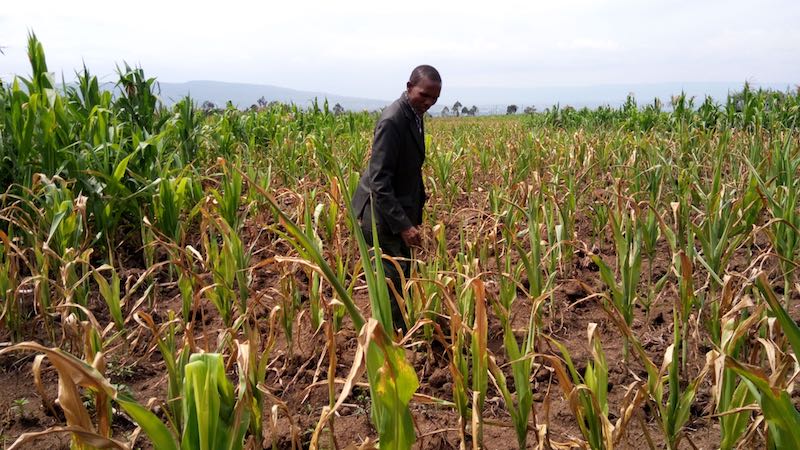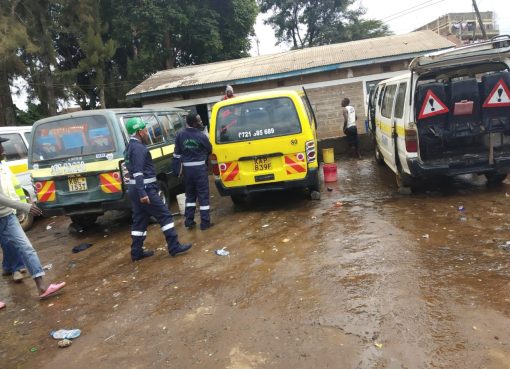The changing weather patterns are making it difficult for farmers in the country to plan using the traditional knowledge of the two planting seasons, which previously were easier to predict.
Farmers in Busia blame erratic weather patterns, high cost of fertilizers and fall army worm infestation for the poor production this season that has triggered food insecurity.
They called on the government to facilitate irrigation farming and consider employing adequate extension field officers to advice farmers on the best farming practices in the wake of climate change.
Agriculture, being an important sector in the economy of Busia County, contributing 60 percent of the GDP, is now facing numerous challenges resulting from harsh effects of climate change.
In a move aimed to explain why hunger threats still loom large in Busia county, Agriculture Extension officer in the county, Jackline Amadi said fall armyworm pest and high cost of fertilizer have contributed immensely to the poor harvest experienced this season, adding that scanty rainfall as well as striga weed are to blame too.
“Climate change is one of the most defining concerns of today’s world and has greatly reshaped or is in process of altering the earth’s ecosystems. It has really impacted on agriculture negatively in this county,” noted Amadi.
“Climate change and increased weather variability has been observed and is manifested in the increase in frequency and intensity of weather extremes, including high temperatures leading to prolonged drought and erratic rainfall patterns,” she added.
A former Agricultural Finance Corporation managing director Lucas Meso echoed her sentiments urging the government to fully adopt irrigation farming as opposed to rain-fed farming that is prone to poor harvest. He added that extension officers are instrumental in averting food insecurity.
“The government must re-consider adopting irrigation farming to utilize available land and help address the issue of food shortage once and for all. We can’t have a country where the majority of its land is idle and a battle ground for criminals in the name of cattle rustling,” he noted.
Meso attributed the current high cost of unga flour to poor storage facilities at the national silos depot that cannot store grains for a longer period, challenging the government to ensure national cereals stores are modernized.
“Storage of cereal lots on the farm level or on manufacturing silos can be regarded as the most important postharvest phase with respect to mycotoxin production,” added Meso.
He said the main purpose of grain storage is to equilibrate supply and demand, and added that postharvest operation is a key step in the complex logistics of moving grain from producers to processors and grain products from processors to consumers.
Agro-chemical companies are taking advantage of the situation and advertising different pesticides purported to be effective in controlling pests. Yet the prices of all agricultural inputs including pesticides have recently remained a nightmare to most farmers.
Meso urged farmers across the country to diversify their farming as a mitigation measure against food insecurity that comes with post-harvest losses.
The climate change experts in Busia are now urging farmers to resort to growing quick maturing crops such as vegetables when there is prediction of prolonged dry spells or venture in cereals farming which are tolerant to drought.
By Absalom Namwalo and Joshua Opili





